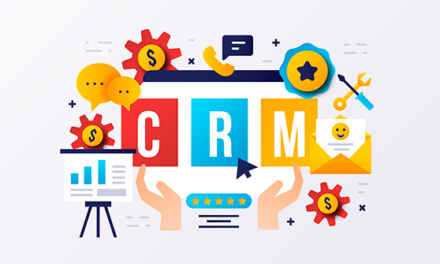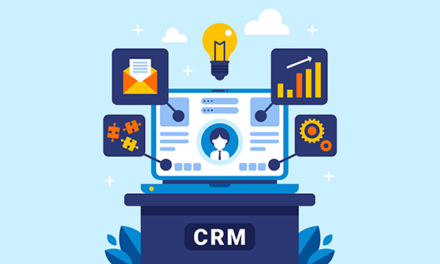Key Takeaways
- Collaborative CRM systems improve communication, increase efficiency, and reduce errors in consulting teams.
- Interaction management, channel management, and document management are two major components of collaborative CRM that help teams to manage customer interactions and data across different channels.
- Benefits of collaborative CRM for consulting teams include improved customer service, better collaboration, increased productivity, and enhanced customer insights.
- Key features of collaborative CRM for consulting teams include contact management, task management, team collaboration tools, reporting and analytics, and integrations with other software.
- Popular examples of collaborative CRM platforms for consulting teams are Bitrix24, SAP Business One, Microsoft Dynamics 365, SugarCRM, and Copper CRM.
In today’s fast-paced business environment, consulting teams face a wide range of challenges that require them to work smarter, not harder.
One of the most essential tools for achieving this goal is Collaborative Customer Relationship Management (CRM).
It’s a game-changing tool that can transform how consulting teams manage customers and drive business growth. Consulting teams can collaborate seamlessly, share information, and automate tasks with Collaborative CRM, increasing efficiency and better customer experiences.
In this article, we’ll dive into the world of Collaborative CRM and explore its benefits, key features, and real-world examples.
Get ready to supercharge your consulting game with Collaborative CRM!
What is collaborative CRM?
Collaborative CRM is a type of CRM that emphasizes teamwork and collaboration rather than individual activities. It focuses on providing a centralized platform for managing customer data, communication, and workflows, which all consulting team members can access in real-time.
By utilizing collaborative CRM platforms, consulting teams can streamline their workflows, reduce duplication of efforts, and improve communication, all while enhancing their overall performance.
Importance of Collaborative CRM For Consulting Teams

The importance of Collaborative CRM for consulting teams cannot be overstated. Consulting teams must be able to manage a vast amount of customer data, including contact information, interactions, leads, and sales pipelines, which can be overwhelming without a centralized platform.
Collaborative CRM provides consulting teams with a centralized hub for managing customer data, which makes it easier to track customer interactions, manage leads, and analyze sales pipelines, all in one place.
In addition, it also helps consulting teams to work more efficiently. By providing automated workflows, task management tools, and real-time communication features, Collaborative CRM platforms enable consulting teams to reduce time spent on administrative tasks and focus on more value-added activities.
Components of Collaborative CRM
Collaborative CRM is an advanced system integrating various components to provide a comprehensive solution for managing customer relationships. The components of Collaborative CRM include Interaction Management, Channel Management, and Document Management.
Interaction management
Interaction Management is a component of Collaborative CRM that helps consulting teams manage customer interactions.
It provides a platform for real-time communication and collaboration with customers, which can help to improve customer satisfaction and engagement.
It also allows teams to track and monitor customer interactions, ensuring that every interaction is addressed.
Channel management
Channel Management is another component of Collaborative CRM that helps consulting teams manage customer communication channels.
It allows teams to manage multiple channels such as email, chat, social media, and phone calls from a single platform, improving efficiency and reducing response times.
This component also enables teams to personalize communication based on the customer’s preferred channel.
Document management
The third component of Collaborative CRM is Document Management, which helps consulting teams manage documents related to customer interactions.
It allows teams to securely store and share documents with the necessary team members, ensuring everyone has access to the same up-to-date information.
This component also facilitates collaboration among team members, allowing them to work together on documents in real-time and improving overall productivity.
In summary, Collaborative CRM components are designed to improve communication, collaboration, and productivity among consulting teams, leading to better customer management and engagement.
Benefits of Collaborative CRM for Consulting Teams

Improved communication
Improved communication through Collaborative CRM means consulting teams can work more efficiently and effectively together.
It helps to avoid duplication of efforts and reduce errors, as everyone has access to the same information.
With real-time communication, teams can quickly address issues or concerns and make decisions collaboratively.
Enhanced productivity
Collaborative CRM systems often include workflow automation tools that help consulting teams streamline tasks and save valuable time.
It means that teams can focus on high-value activities that require human expertise and judgment rather than spending time on repetitive or low-value tasks.
By automating routine tasks, teams can be more productive and efficient, delivering better results in less time.
Consistent customer data management
In a Collaborative CRM system, customer data is stored in a centralized database that all relevant teams and departments can access.
It helps to ensure consistency in customer data management and avoids duplication of efforts.
With consistent customer data management, consulting teams can improve their understanding of customer needs and preferences, leading to better customer engagement and increased loyalty.
Improved customer engagement
Collaborative CRM systems provide consulting teams with the tools they need to engage with customers in a personalized and meaningful way.
By enabling teams to access customer data and communicate with customers in real-time, Collaborative CRM helps to create a more positive customer experience. It results in increased customer satisfaction, loyalty, and advocacy.
Enhanced performance tracking
Collaborative CRM systems often include analytics and reporting tools that enable consulting teams to track performance metrics and identify areas for improvement.
It helps teams to refine their strategies and improve their overall performance. By tracking key metrics such as customer satisfaction, customer retention, and revenue growth, consulting teams can make data-driven decisions to optimize their processes and achieve better results.
Key Features of Collaborative CRM for Consulting Teams

Collaborative CRM offers a range of features that can help consulting teams manage customer relationships more effectively. Some of the key features include:
Shared database
The shared database in Collaborative CRM systems ensures that all relevant teams and departments access the same up-to-date customer information, including contact details, sales history, and service interactions.
Thus, it helps ensure timely communication and consistency in customer communication, improving overall customer satisfaction.
Communication tools
Real-time communication tools like instant messaging, email, and video conferencing in Collaborative CRM systems enable consulting teams to collaborate more effectively and efficiently.
These tools can be especially useful when team members work remotely or in different locations, as they enable them to stay connected and communicate quickly and easily.
Workflow automation
Collaborative CRM systems often include workflow automation tools, such as automated task assignments, reminders, and notifications.
These tools help consulting teams streamline tasks, reduce manual effort, and focus on high-value activities requiring human expertise and judgment.
Analytics and reporting
Collaborative CRM systems provide analytics and reporting tools that allow consulting teams to track performance metrics, such as customer satisfaction rates, sales pipeline, and service response times.
It helps teams identify improvement areas, refine their strategies, and optimize their processes.
Mobile access
Many Collaborative CRM systems offer mobile access, which enables consulting teams to access customer data and communicate with customers while on the go.
It helps consulting teams to be more responsive and provide a more seamless customer experience.
Customizable dashboards
Collaborative CRM systems often allow consulting teams to customize their dashboards, enabling them to access the most relevant information to their role.
It helps teams to be more efficient and effective in their work, as they can easily access the data and insights they need to perform their tasks.
Additionally, customizable dashboards can help teams to stay organized and prioritize their work based on the most important customer issues or opportunities.
Examples of Collaborative CRM Platforms for Consulting Teams
Collaborative CRM platforms offer consulting teams a centralized platform to manage customer data and workflows.
There are various platforms available in the market that cater to the needs of consulting teams. Here are some examples of Collaborative CRM Platforms for Consulting Teams:
Bitrix24
Bitrix24 is a cloud-based CRM platform offering various features to help consulting teams manage their customer relationships.
It provides a centralized platform for communication, project management, and customer engagement. With Bitrix24, consulting teams can collaborate on tasks, share information, and track progress in real-time.
It also includes a social intranet for internal communication, a contact center for managing customer interactions, and a customizable dashboard for monitoring performance.
SAP Business One (SAP Customer 360)
SAP Business One is an integrated business management software with a CRM module called SAP Customer 360.
This platform is designed to help consulting teams manage their customer relationships, sales, and marketing efforts. It provides a comprehensive view of customer data, including contact information, transaction history, and preferences.
With SAP Customer 360, consulting teams can manage leads, track sales opportunities, and automate marketing campaigns.
Microsoft Dynamics 365
Microsoft Dynamics 365 is a cloud-based CRM platform that offers a range of features to help consulting teams manage their customer relationships.
It provides a unified sales, marketing, customer service, and project management platform. With Microsoft Dynamics 365, consulting teams can track leads, manage opportunities, and automate sales processes.
It also includes a customer service module for managing customer interactions and a project management module for tracking project progress.
SugarCRM
SugarCRM is an open-source CRM platform offering various features to help consulting teams manage their customer relationships. In addition, it provides a flexible platform for customization and integration with other systems.
With SugarCRM, consulting teams can manage sales leads, automate marketing campaigns, and track customer interactions.
It also includes a customer service module for managing support tickets and a reporting module for monitoring performance.
Copper CRM
Copper CRM is a cloud-based platform offering a range of features to help consulting teams manage their customer relationships.
It provides a simple and intuitive platform for managing sales leads, automating marketing campaigns, and tracking customer interactions.
With Copper CRM, consulting teams can collaborate on tasks, share information, and track progress in real-time. It also includes a reporting module for monitoring performance and a customizable dashboard for managing tasks.
These platforms enable consulting teams to collaborate more effectively and provide personalized experiences to their clients. By using Collaborative CRM platforms, consulting teams can streamline their workflows, improve communication, and provide excellent customer service, increasing customer satisfaction and loyalty.
Conclusion
In conclusion, Collaborative CRM is a game-changing tool for consulting teams. By prioritizing teamwork, enhancing communication, and streamlining workflows, Collaborative CRM empowers consulting teams to deliver top-notch results, improve customer satisfaction, and drive business growth.
With its key features, it helps consulting teams to work more efficiently and deliver better customer service. Collaborative CRM is essential for consulting teams looking to manage their customer relationships effectively and achieve their goals.
Collaborative CRM is the way to go if you want to take your consulting game to the next level.




